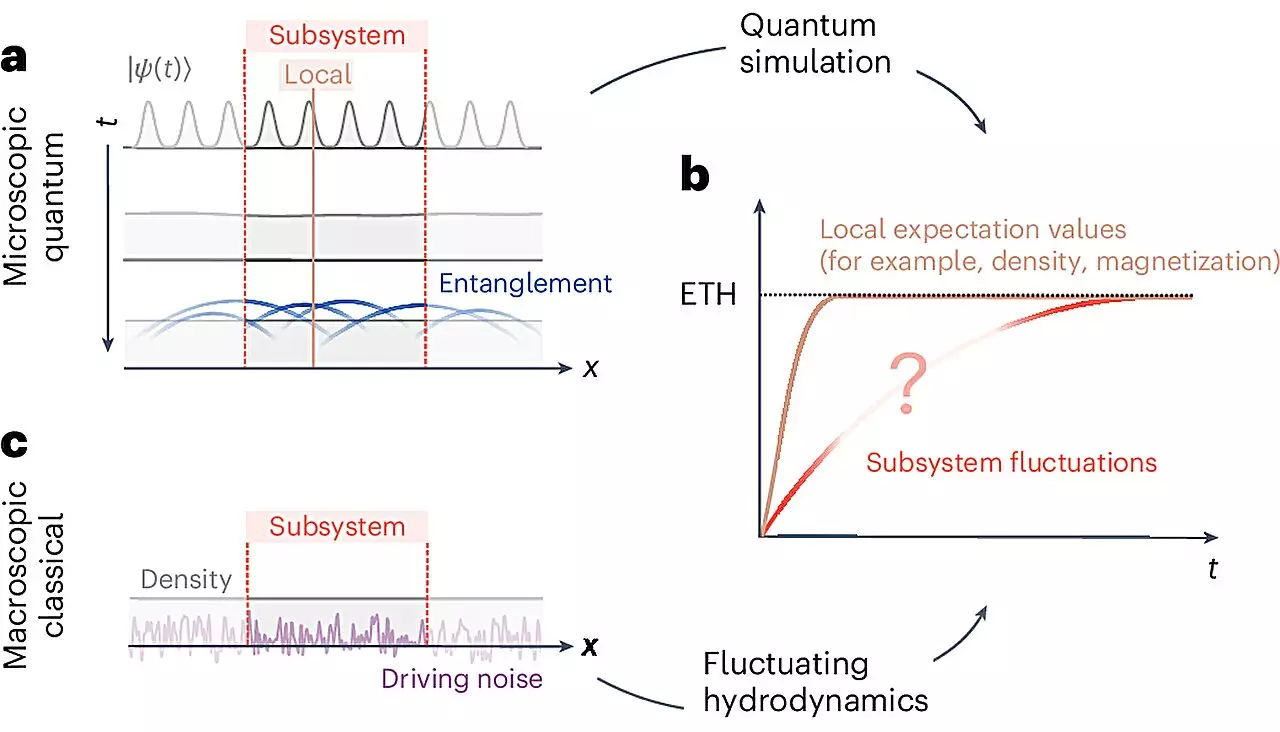The world of quantum physics is known for its complexity and chaotic nature, making it a challenging field to study. However, a recent research study led by Professor Monika Aidelsburger and Professor Immanuel Bloch from the LMU Faculty of Physics suggests that chaotic quantum systems may be described macroscopically through simple diffusion equations with random noise. This finding challenges the traditional understanding of quantum systems and opens up new possibilities for describing their behavior.
The study introduces the concept of fluctuating hydrodynamics (FHD) as a way to simplify the macroscopic description of chaotic quantum systems. FHD is based on the idea that the erratic movements of particles in a system can be described as white noise, leading to a simplified diffusion equation that captures the overall behavior of the system. This approach is similar to how hydrodynamics is used to describe the flow behavior of water without delving into the physics of individual water molecules.
One of the key challenges in describing chaotic quantum systems is the fundamental difference in the laws of physics that govern quantum particles compared to classical particles. Quantum systems are characterized by phenomena such as uncertainty and entanglement, which defy everyday intuition. The complexity of quantum systems makes them particularly challenging to calculate, but the researchers suggest that an FHD description could provide a simplified way to understand their behavior.
To test the validity of the FHD description for chaotic quantum systems, the research team studied the behavior of chaotic many-body quantum systems using ultracold cesium atoms in optical lattices. By preparing the quantum system in a non-equilibrium initial state and observing its evolution over time, the researchers were able to measure the fluctuations and density correlations within the system. Their results indicated that the FHD theory provided a qualitative and quantitative description of the system’s behavior.
The researchers believe that their findings are an important step towards simplifying the description of chaotic quantum systems. Despite the microscopic complexity of these systems, the study suggests that they can be understood as macroscopic diffusion processes, similar to Brownian motion. This insight could have significant implications for the field of quantum physics and open up new avenues for further research in describing and analyzing chaotic quantum systems.
The research study led by Professor Monika Aidelsburger and Professor Immanuel Bloch sheds new light on the complexity of chaotic quantum systems. By introducing the concept of fluctuating hydrodynamics, the researchers suggest that these systems can be described simply through diffusion equations with random noise. This finding challenges the traditional understanding of quantum systems and opens up new possibilities for studying and analyzing their behavior in a simplified manner. Further research in this area could lead to a deeper understanding of the underlying principles that govern quantum systems and pave the way for exciting developments in the field of quantum physics.

